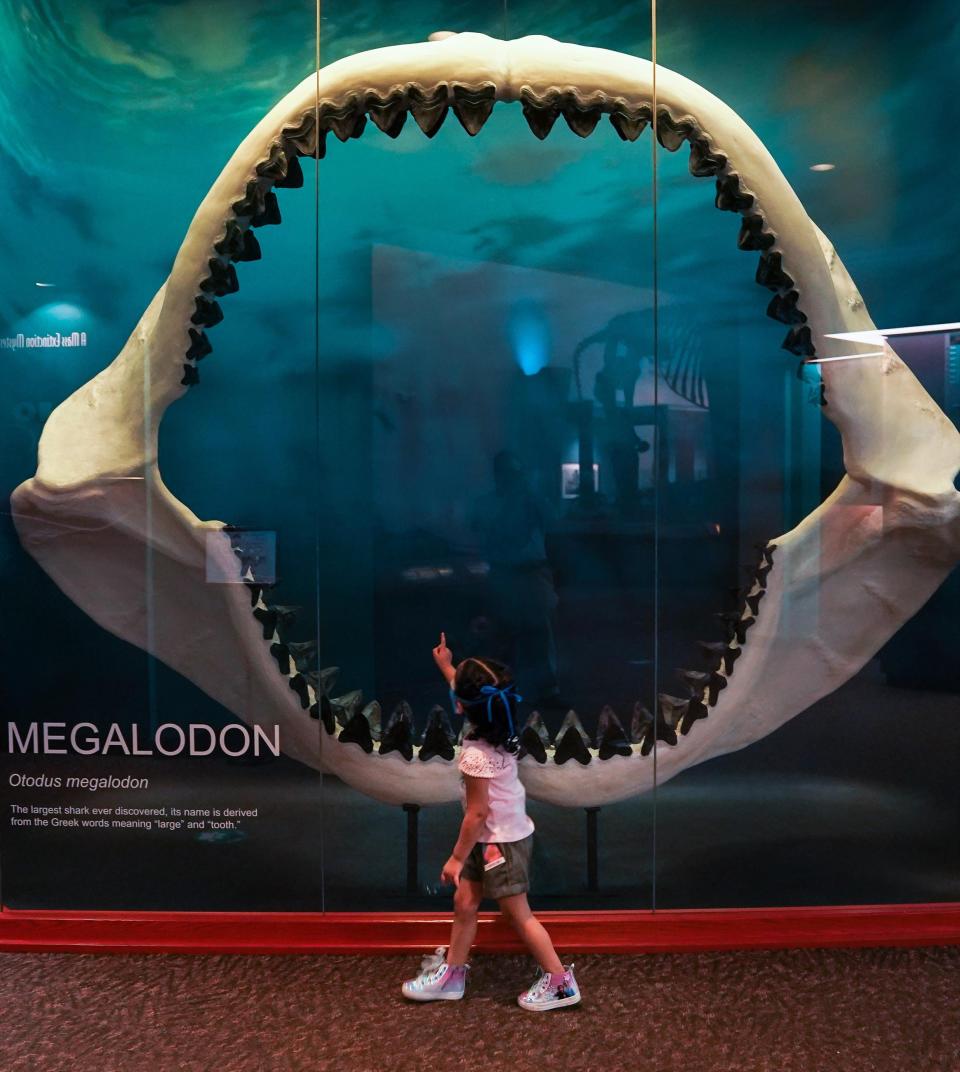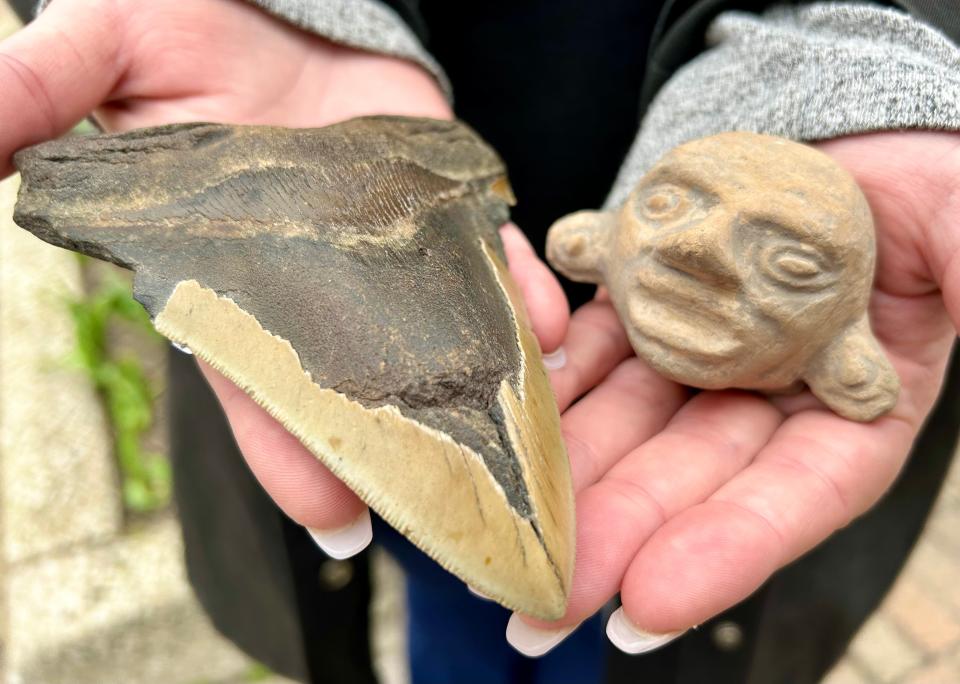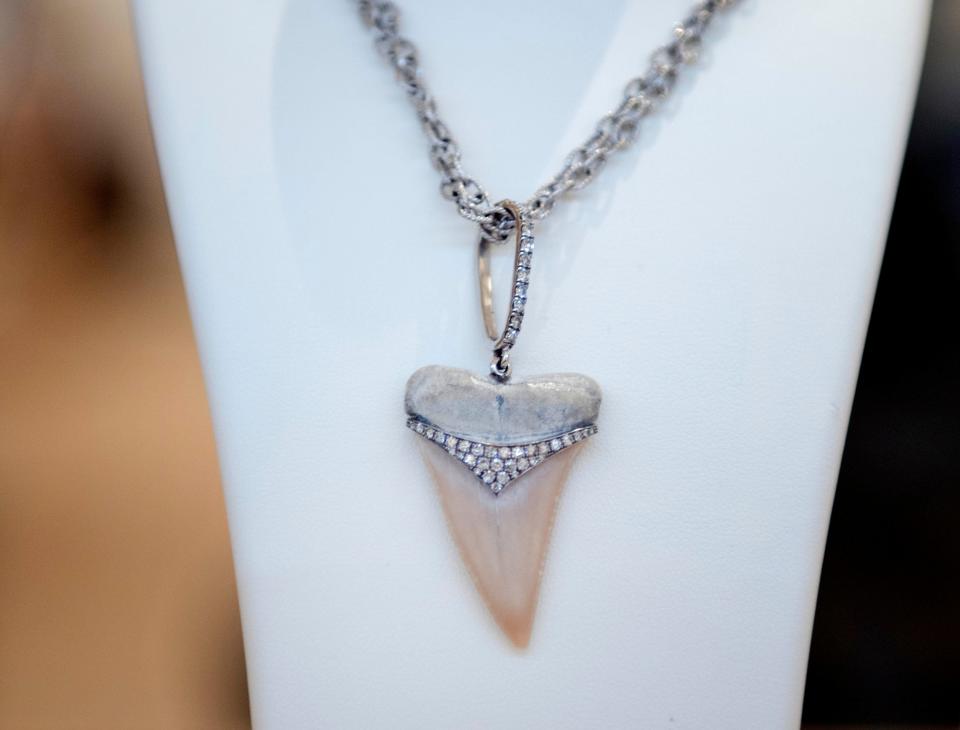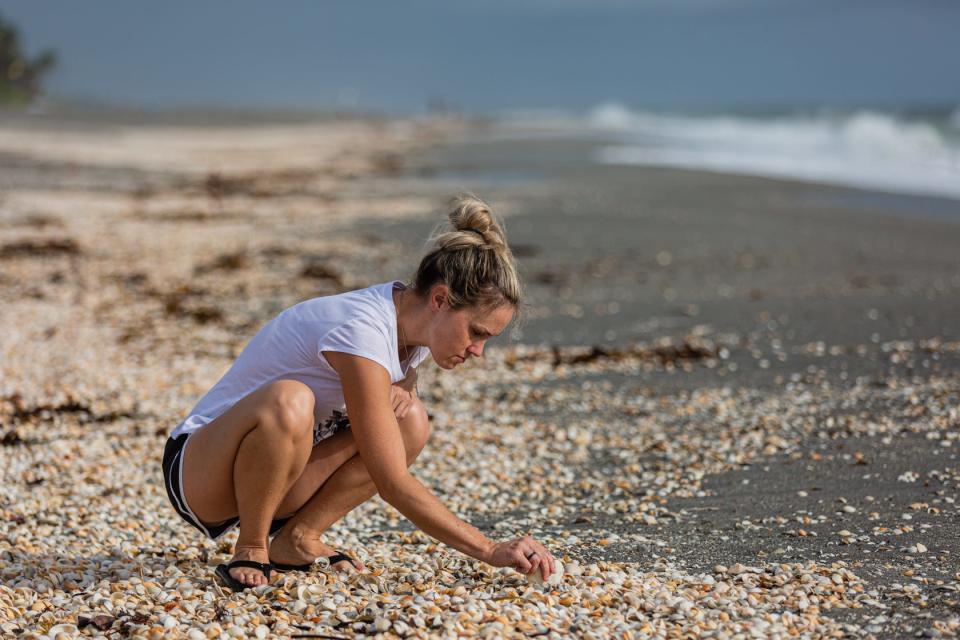Teeth on the beach: Search for megalodon teeth in South Carolina on Memorial Day weekend
Fans of the horror flick "Jaws" may remember 2018's "The Meg," where a prehistoric megalodon attacks a deep sea-submersible, preying on the crew inside.
Although the movie did not receive favorable reviews, it left many viewers to imagine what life on the seaside would have been like should the massive creatures exist today.
Those who are particularly curious are beachgoers who spend their summers mining for megalodon teeth in the sand.
With Memorial Day weekend ahead, now is the time to unearth your teeth on the beach with family and friends. Here's what megalodon teeth look like, and where you can find them.
What is a megalodon?
Otodus megalodons, commonly known as megalodons, are the largest predators to swim the earth's seas. The ancient shark's fossils date back to 20 million years ago, according to the Natural History Museum. Over the next 13 million years, the giant sharks reigned supreme over the ocean until around 3.6 million years ago, when they faced extinction.
Early visual interpretations of the megalodon, which imagined the sea creature as a giant white shark, are now believed to be incorrect. The museum states the megalodon had a short snout, a flat, squashed jaw, and extra-long pectoral fins to support its weight. The powerful predators also had 276 large, serrated teeth, the longest one recorded measuring around 7 inches diagonally. Their jaws, spanning 8.9 feet by 11.2 feet wide, gave the beasts enough room to swallow two adult humans side-by-side.

"With its large serrated teeth megalodon would have eaten meat ― most likely whales and large fish, and probably other sharks. If you are that big you need to eat a lot of food, so large prey is required," Emma Bernard, curator of fossil fish, told the Natural History Museum.
Sorry "Finding Nemo" fans ― these sharks were not fish friendly.
How can I find megalodon teeth on the beach?
The southern U.S. shores are some of the best places to find megalodon teeth, with most of the teeth popping up in North Carolina, South Carolina and Florida. You may come across these shark tooth artifacts in ocean shores, riverbeds, and shallow water areas along the eastern coast. To gather the teeth, you will need a bucket, sifting screen, and shovel. The process may take quite a few attempts ― discovering a prehistoric tooth is no easy feat, requiring time and patience. You will also need to keep these safety tips in mind while being in the water.
Here's how you can find megalodon teeth on the beach, according to Sciencing:
? Enter the water with your three items and stay within the shallow areas.
? Use your shovel to scoop sand and sediment. After, pour it into the filtering screen, leaving the screen at water level. Gently shake the sifting screen to rid the contents of sand.
? Repeat the first and second steps until a megalodon tooth is in the sifting screen contents. Place the tooth in your bucket for safekeeping.

Where are the best NC beaches to find shark teeth?
While there is no guarantee that you will find a megalodon tooth on your first try, here are some beaches in N.C. where you are likely to find shark teeth according to Walter Magazine:
? Holden Beach
? Ocean Isle Beach
? Onslow Beach (Please note: This beach is only accessible to current and former military personnel or their family members who have a military ID. This is because the beach is part of Marine Corps Base Camp Lejeune. Those without military access may enter the beach if they are escorted by someone with a military ID, who can help them retrieve a temporary pass at the Camp Lejeune Visitors Center by the Wilson Boulevard Gate).
? Shark's Tooth Island
? Topsail Island
? Wrightsville Beach

Where are the best SC beaches to find shark teeth?
Here are the five best places for shark tooth sleuthing according to Discover South Carolina:
? Cherry Grove Beach
? Edisto Beach
? Folly Beach
? Morris Island
? Myrtle Beach

Nina Tran covers trending topics. Reach her via email at [email protected]
This article originally appeared on Greenville News: Megalodon teeth, shark teeth: Find them at SC beaches Memorial Day
